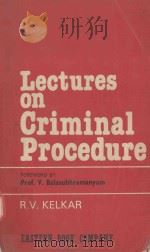《LECTURES ON THE GROETH OF CRIMINAL LAW IN ANCIENT COMMUNITIES》
| 作者 | 编者 |
|---|---|
| 出版 | MACMILLAN AND CO. |
| 参考页数 | 123 |
| 出版时间 | 1890(求助前请核对) 目录预览 |
| ISBN号 | 1584771674 — 求助条款 |
| PDF编号 | 812921608(仅供预览,未存储实际文件) |
| 求助格式 | 扫描PDF(若分多册发行,每次仅能受理1册) |
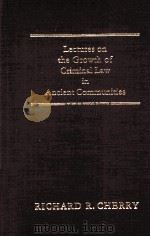
LECTURE ⅠINTRODUCTORY.1
Distinction between the terms Criminal and Penal Law—Advantages of historical study of Law—Illustrated by history of noxal actions—Instances of confusion introduced into legal principles through ignorance of their history—Ancient Laws were not commands, but customs sanctioned by usage—Private revenge, the earliest form of punishment recognized by all communities—Prevalence of retaliation in various countries—Growth of system of pecuniary compensation instead—The death-fine in Greece—Ancient Germany—England—Ireland—Sweden—Turkish Empire—Traces of it in Roman Law—Forbidden by Mosaic Legislation—First germ of a judicial proceeding—Tribal Assemblies fix the amount of fines and enforce payment of them—Outlawry, the earliest sanction of Law—Transition from stage of Penal Law to Criminal Law1
LECTURE ⅡANCIENT IRISH LAW.17
Value of Brehon Laws in study of ancient criminal jurisprudence—Chief authorities—The Senchus Mor—Account of its compilation—Indications of its very ancient character—Summary of principles of Brehon Law as to crimes—Eric fines—Story of the " Fate of the Children of Turenn "—llustrates stage of legal progress anterior to arbitration—Liability of relatives for fines—Punishment for theft—Violation of the King's " precinct"—Problem as to the existence of a sanction—Outlawry—Progress of primitive ideas on penal law17
LECTURE ⅢLAW OF SEMITIC RACES.40
Ⅰ. HEBREW LAW.40
Influence of Religion upon Law—Contrast of native and foreign religions in this respect—Tenacity of the Jews as to their legal and religious regulations—Hebrew Law of Homicide—Prohibition of the death fine—Institution of Cities of Refuge—First trace of a judicial proceeding in Hebrew Law—The Lex Talionis as regards lesser injuries—Compensation allowed to be received for them—Law of private property and succession—Punishment for theft—Recognition of paternal rights40
Ⅱ. MOHAMMEDAN LAW.51
Founded upon the Koran—Development of the law through theory of tradition—Principle of retaliation inculcated, but death fines not forbidden, as among the Jews—Practice in Persia and other Mohammedan countries as to murder;—as to accidental homicide—Punishment for theft—The Turkish Penal Code of 184051
LECTURE ⅣROMAN PENAL LAW.56
Slow development of the notion of a crime in the Roman system—Rapid development of legal ideas otherwise—Contrast of English and Roman Law in this respect—Non-religious character of Roman Law—The Ⅻ. Tables.—Their provisions as to offences—Sketch of subsequent history of penal law at Rome—Nature of obligations ex delicto—The actio furti—Comparison of Roman and English treatment of theft—How homicide was dealt with at Rome—The Quastores Paricidii—Importance of their appointment in the history of criminal law—Legislation of Sulla—Degradation of criminal trials in later period of the Republic—Three causes retarded the growth of criminal law at Rome: (1) Republican form of government; (2) Irreligious character of the people ; (3) Existence of slavery56
LECTURE ⅤEARLY ENGLISH PENAL LAW.78
History of English Criminal Law continuous from earliest Anglo-Saxon times to the present day—Anglo-Saxon Laws as to crimes—Private revenge recognized and allowed—Introduction of system of pecuniary fines—Legislation of Alfred to enforce fines and restrict revenge—Original position of the King as regards criminal matters—Threefold fine for homicide—Acceptance of, discretionary in certain cases—Final prohibition of revenge by Statute of Marlbridge—Outlawry, its origin and growth—Bracton's account of it—Causes of the decline of punishment by fine: (1) Influence of Religion; (2) System of frankpledge; (3) Growth of Royal Jurisdiction78
LECTURE ⅥEARLY ENGLISH CRIMINAL LAW.93
Origin of prosecution by the Crown in criminal matters—Modern form of an Indictment—Shows traces of its history—The King's Peace—Real breach of the peace formerly necessary in order to constitute a criminal offence—System of appeals or private prosecutions for offences—Their origin and history—Instances of in reigns of Elizabeth and Charles Ⅰ.—Last instance of, in 1818—The wager of battle then recognized by the Court of King's Bench as part of the law of the land—Conservative character of English Law—Historical explanation of many apparently anomalous rules of modern English Criminal Law93
1890《LECTURES ON THE GROETH OF CRIMINAL LAW IN ANCIENT COMMUNITIES》由于是年代较久的资料都绝版了,几乎不可能购买到实物。如果大家为了学习确实需要,可向博主求助其电子版PDF文件(由 1890 MACMILLAN AND CO. 出版的版本) 。对合法合规的求助,我会当即受理并将下载地址发送给你。
高度相关资料
-
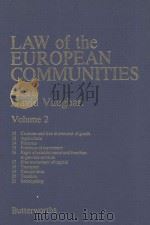
- LAW OF THE EUROPEAN COMMUNITIES VOLUME 2
- 1986 BUTTERWORTHS
-

- THE CRIMINAL LAW OF HONG KONG
- PEKING UNIVERSITY PRESS
-
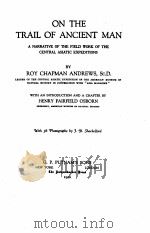
- ON THE TRAIL OF ANCIENT MAN
- 1926 G.P. PUTNAM’S SONS
-
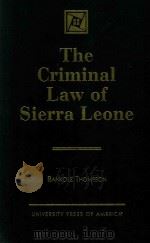
- The Criminal Law of Sierra Leone
- 1999 University Press of America
-

- VARIETIES OF POLICE BEHAVIOR THE MANAGEMENT OF LAW AND ORDER IN EIGHT COMMUNITIES
- 1968 Harvard University Press
-

- THE LAW OF CRIMINAL INVESTIGATION
- 1982 THE LAW BOOK COMPANY LIMITED
-

- THE CRIMINAL LAW LIBRARY OFFENCES OF VIOLENCE
- 1991 WATERLOW PUBLISHERS
-

- SOCIAL SECURITY LAW OF THE EUROPEAN COMMUNITIES
- 1980 MANSELL PUBLISHING
-

- DIGEST OF THE CRIMINAL LAW OF CANADA
- 1980 THE CARSWELL COMPANYLIMITED
-
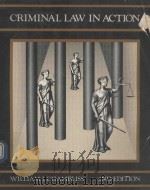
- CRIMINAL LAW IN ACTION
- 1975 JOHN WILEY AND SONS
-
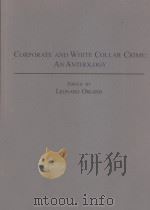
- CORPORATE AND WHITE COLLAR:AN ANTHOLOGY
- 1995 ANDERSON PUBLISHING COMPANY
-
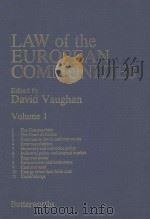
- LAW OF THE EUROPEAN COMMUNITIES VOLUME 1
- 1986 BUTTERWORTHS
提示:百度云已更名为百度网盘(百度盘),天翼云盘、微盘下载地址……暂未提供。➥ PDF文字可复制化或转WORD
